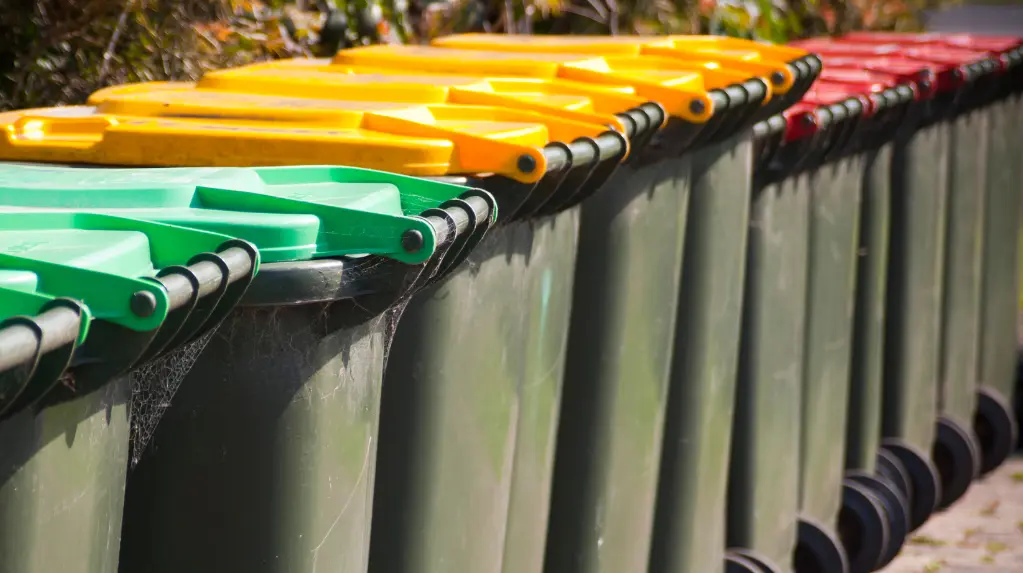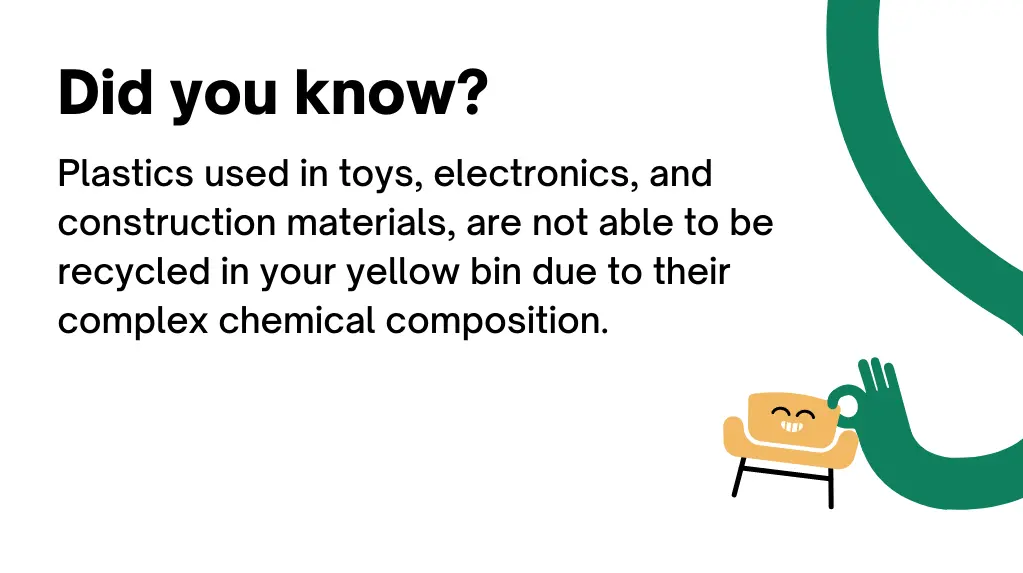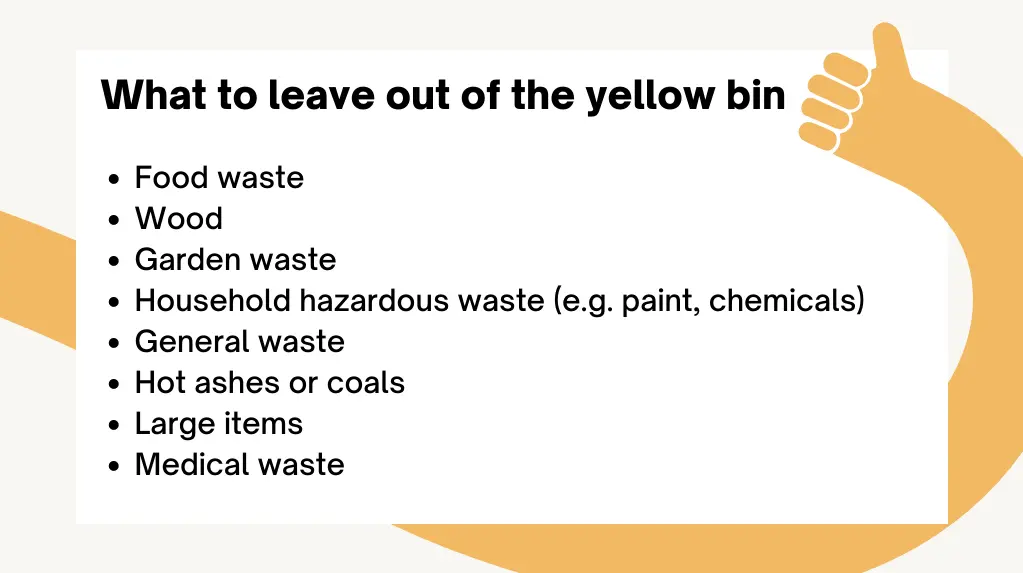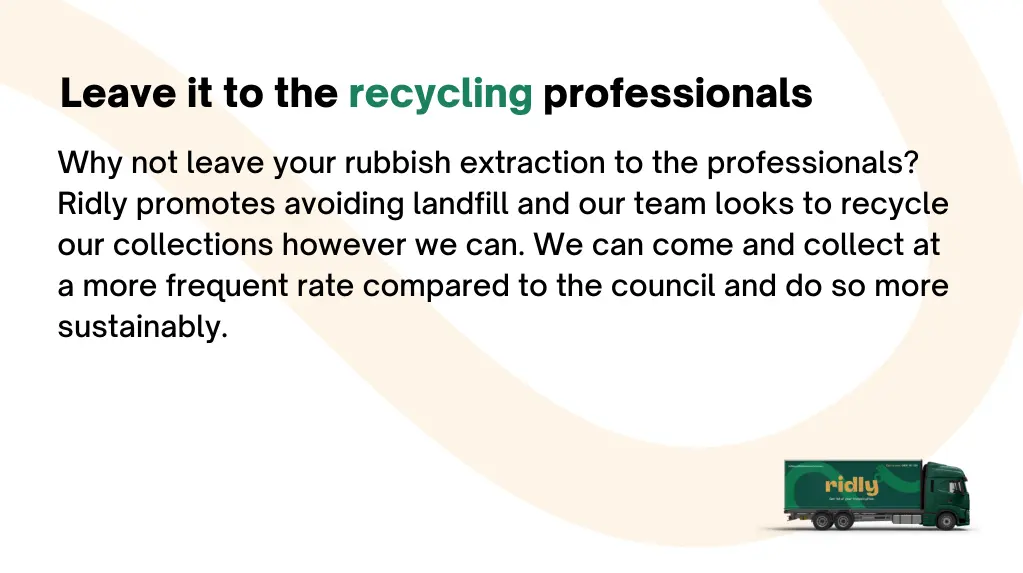

Recycling at home is the first step all NSW residents can take to correctly managing their household waste. All households across NSW are provided by their local council with a yellow lidded bin, in here you should dispose of items that can be recycled. But what are those items? What goes in the yellow bin? If you’ve ever asked yourself these questions, you’re not alone. Recycling can be full of contradictions - join Ridly as we outline what does and does not go in the yellow recycling bin in NSW.
What Goes in The Yellow Bin?
In NSW, all households are issued with a yellow bin. Collected either weekly, or fortnightly, this bin is only able to be filled with recyclable items, or else they will be left on your kerb. So, what goes in the yellow recycle bin? Common household items including:
1. Aluminium
Aluminium cans, tins and foils can all be recycled. Recycling aluminium saves energy and resources and reduces pollution.
To recycle aluminium, simply place it in your recycling bin. Most recycling centres will accept aluminium cans, tins, and foils. In NSW, you can also earn 10c on eligible aluminium cans through the Return and Earn Scheme.
2. Glass
Bottles, jars, and other common household items made of glass can all be recycled and reused.
Not only is recycling glass good for the environment, but it can also help save money. Recycling glass reduces the need to create new materials from scratch, which saves energy and resources. And because recycled glass can be used over and over again, it cuts down on waste overall.
So next time you're about to throw away a glass bottle or jar, think twice! Recycling it is a great way to do your part for the planet.
3. Plastic
Different types of plastics can be recycled in Australia, depending on the local infrastructure and facilities.
Some common recyclable plastics include PET (polyethylene terephthalate), HDPE (high-density polyethylene) and PVC (polyvinyl chloride). These plastics are typically used in packaging, bottles, and food containers.
Other types of plastics, such as those used in toys, electronics, and construction materials, may not be able to be recycled due to their complex chemical composition. However, these can be recycled using alternative methods beyond the yellow ben.
When in doubt, check the sticker on the side of your bin, or your local council’s website for further guidance.

4. Paper
Repurposing paper from recycled materials uses 99% less water and 50% less energy than if produced from raw material – so it pays to make sure that you recycle paper properly.
In NSW, it is recommended that you use your blue-lid bin for recycling paper materials if you have been issued with one. If your blue bin is full, or you do not have one, you can use your yellow recycling bin to dispose of unwanted paper materials including:
• Plain and coloured paper
• Gloss paper
• Shredded paper
• Envelopes
• Cardboard boxes
• Magazines
• Newspapers
• Books
• Cardboards
If your paper has food scraps or oil on it, then it is recommended that you dispose of it in your general waste bin.
What Does Not Go in the Yellow Bin?
It can be confusing to know what goes in which bin, but it's important to get it right so that your recycling can actually be recycled! Here's a quick guide to what NOT to put in your yellow council recycling bin in Sydney:

• Food waste
• Wood
• Garden waste
• Household hazardous waste (e.g. paint, chemicals)
• General waste
• Hot ashes or coals
• Large items
• Medical waste
For more information on what can and can't be recycled in Sydney, check out the NSW Environment Protection "author"ity website.
1. Other Plastic
Not all plastics are created equal. Some plastics are permitted in your yellow recycling bin, but it’s essential you leave the following out, and instead put them in your red bin:
• Soft plastics
• Plastic bags
• Bread bags
• Biscuit and confectionery packets
• Rice and Pasta bags
• Compostable plastic packaging
• Polystyrene takeaway food containers
• Meat trays
• Foam packaging
2. Sharps and Syringes
We all have a responsibility to never put sharps in your yellow recycling bin. This includes items like knives, needles, glass, and metal. These can injure sanitation workers when they are sorting through the recycling. Wrap these items in newspaper or bubble wrap before putting them in the trash.
3. Mixed Materials
There are certain items that cannot be recycled properly if they are made of cardboard, metal, plastic, or foil. These materials must be separated before they can be recycled. Otherwise, they will contaminate the recycling process and reduce the quality of the final product.
Cardboard, metal, plastic, and foil are all recyclable materials. However, when these materials are combined, they can no longer be recycled together. This is because each material has a different recycling process.
For example, cardboard is recycled by breaking it down into small pieces and then reforming it into new cardboard. Metal is recycled by melting it down and then shaping it into new products. Plastic is recycled by breaking it down into small pellets and then reformed into new plastic. Foil is recycled by breaking it down into small pieces and then reformed into new foil.
When these materials are combined, they must be separated before they can be recycled. Otherwise, the recycling process will be contaminated. So, if you have any items that are made of cardboard, metal, plastic, or foil, make sure to recycle them properly by separating them before putting them in the yellow recycling bin.
4. Other Glass
One of the most common questions we get asked is whether light globes, mirrors, and window glass can be recycled. The answer is a bit complicated, so let's break it down.
Light globes, mirrors, and window glass are all made from a type of material called "float glass." Float glass is produced by floating molten glass on a bed of molten metal, which gives it its smooth surface.
However, float glass is not recyclable in the traditional sense. That's because the recycling process would damage the float glass and make it unusable.
So what can you do with your unwanted float glass? One option is to take it to a local recycling centre that accepts float glass. Or you can repurpose it into something new, like a vase or a wind chime.
Whatever you do, make sure to dispose of float glass properly. Don't just throw it in your yellow bin, as it could end up in a landfill where it will take up space and potentially cause environmental damage.

5. Wood
Wood cannot be recycled through your yellow-lid recycling bin but can be recycled through specialist facilities. Wood is a natural material and therefore biodegrades over time, meaning it cannot be reprocessed like other materials such as paper or plastic. However, wood can be recycled into mulch or compost, which can be used to improve soil quality. If you have unwanted wood, get in touch with Ridly to find out how we can take care of your unwanted wood - responsibly.
Important Things to Remember About the Yellow Bin
In NSW, most councils will not collect your yellow bin if they contain large amounts of unacceptable items. If you bin contains rubbish or other items that can contaminate the load, then they will be left on your kerb. If you have overloaded your bin, to the point where your lid will not close, the council won’t accept your bin, as it is a safety hazard to the operator.
If you find yourself with an overload of recycling after a big party, or a household clean, rubbish collection services like Ridly can come and get rid of it. Doing this gets it off your property quicker, so you don’t have to wait for the fortnightly collection, and it will still get recycled.
Alternative Ways to Recycle
There are many ways to recycle that go beyond simply throwing items in the recycling bin. Here are some alternative ways to recycle:
Composting: Composting is a great way to recycle food waste and yard waste. It helps reduce greenhouse gas emissions and can be used to fertilize gardens and landscapes.
Upcycling: Upcycling is a process of repurposing materials or products into something new and useful. This can be done with everything from clothes to furniture to electronics.
Donating: Donating unwanted items to charity or thrift stores is a great way to give them a second life while also helping those in need.
Selling: Selling items you no longer want, or need is a great way to make some extra money while also getting rid of clutter.
Repairing: Repairing broken items instead of buying new ones is a great way to save money and reduce waste.
No matter how you choose to recycle, remember that every little bit helps!
The Importance of Knowing What Goes in the Yellow Recycling Bin
The easiest way to determine whether or not something can go in the yellow recycling bin is whether or not it has the Australasian Recycling "label". The very recognisable "label" features the classic recycling triangle and will also have special instructions about how to recycle the item. In some instances, it will be the entire item, other instances it will be the some of the individual components of the item, or it will indicate other special instructions.
There are a number of reasons why you should use your yellow recycling bin properly. First, it helps to reduce the amount of waste that ends up in landfills. Second, it helps to conserve resources and save energy. Third, it helps to reduce pollution.
Do your part and make sure to recycle right with your yellow lid recycling bin.
Recycling with Ridly
Ridly is committed to making it easy for everyone to recycle household items.
We offer a seamless rubbish collection process that will take these items from your home and recycle them for you. This means that you don't have to worry about sorting through your rubbish to find items that can be recycled - we will do it all for you.
Starting at only $69, Ridly will come to collect your excess recycling from your household or office, and ensure it is kept away from landfills and sent to the proper recycling facilities. Where possible, we also re-purpose, re-use, and up-cycle with a number of partners. Call us on 0488 846 336 or request a quote online, even though you know what goes in the yellow recycling bin, you might just need some help getting rid of it!